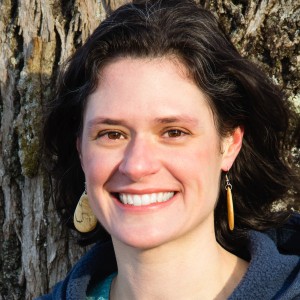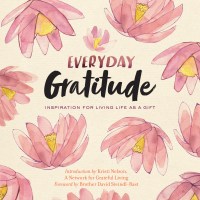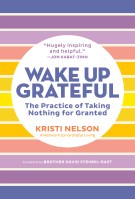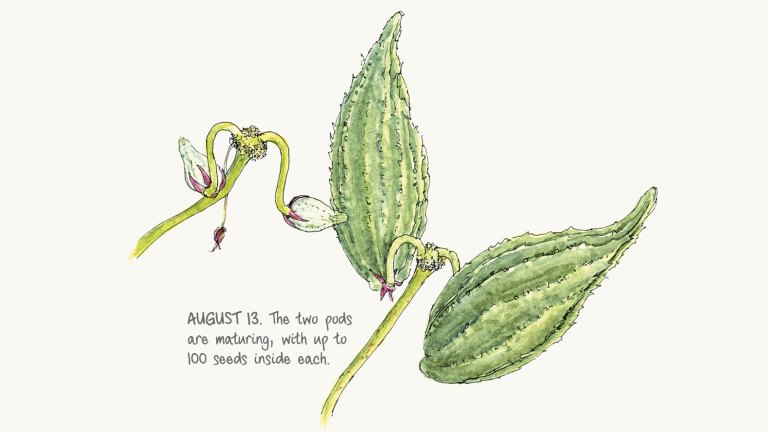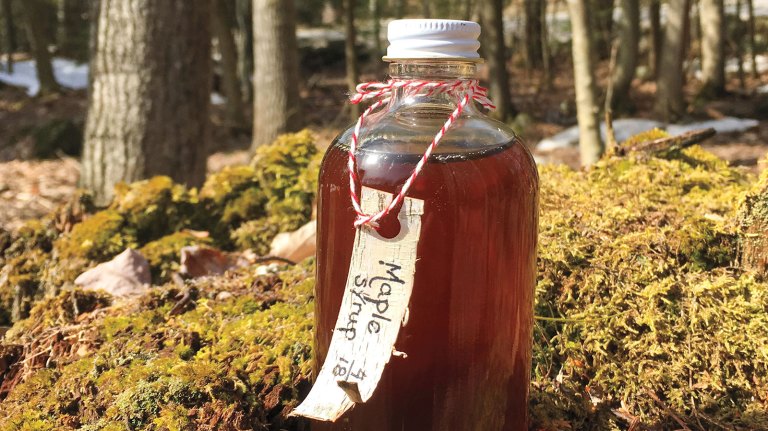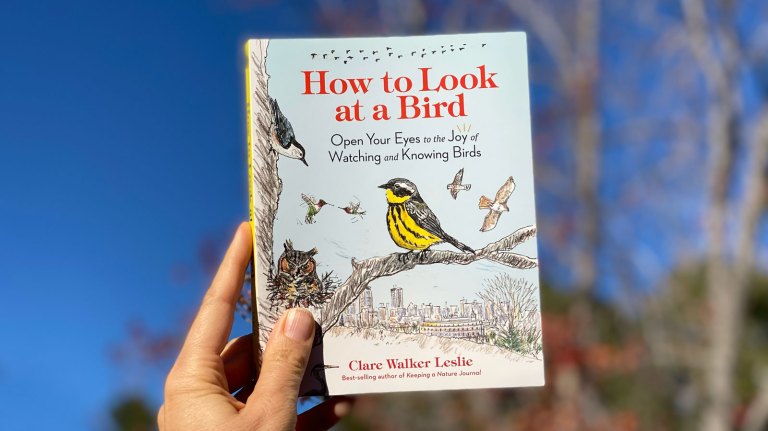Forest Bathing During Quarantine
As lockdowns sweep the country and the world, Forest Bathing Retreat author Hannah Fries writes about the pleasures and benefits of visiting the woods in whatever way you can.
Every morning, now more than ever, I wake up feeling grateful. I look out my window and see the swelling buds of red maples. Bunches of crocuses bloom under a large pine, and daffodils are sprouting up everywhere. I live surrounded by trees and woods, and the woods are still here for us, as they’ve always been, in sickness and in health.
Because I live in a relatively rural place, I am among the lucky humans not stuck inside even as lockdowns sweep the country. Having nowhere else to go, people here and elsewhere have been flocking outdoors. I see people strolling down the street in pairs, cars filling trailhead parking lots. While the most popular trails and parks have been closed due to overcrowding, there are still plenty of trails for us to spread out on, plenty of woods, plenty of outdoor space where we can breathe easy. And people seem to know instinctively that they need it.
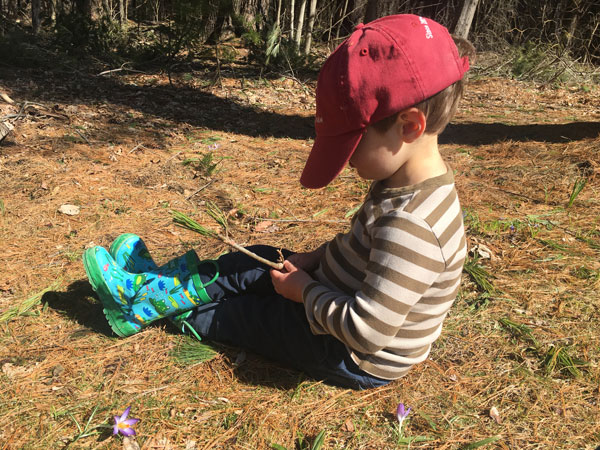
In the patch of woods behind our house, a little stream runs this time of year. My three-year-old son and I have been exploring it almost daily. I’m going to go ahead and call this our forest-bathing time, but honestly, I don’t care what you call it. We are going outside to play and to pay some attention to nature; I never bring my phone (we don’t have cell service here anyway). Amos is an expert forest bather: he is ready to see/feel/smell everything. Life is a scavenger hunt.
He lies down in the wet leaves in his rain pants.
He runs excitedly from one yellow coltsfoot flower to the next.
He pets the soft moss growing on fallen trunks.
He touches a strand of slimy green algae.
He tries to catch a water strider.
He hunts for the distinctive bark of striped maples.
He plucks bits of wintergreen and white cedar to sniff and brings them to me as if I’d ordered them up in a restaurant.
He steps into the stream and lets the mud suck at his rubber boots.
He splashes.
He lets the water whoosh in over the tops of his boots, a thrill I remember from my own childhood.
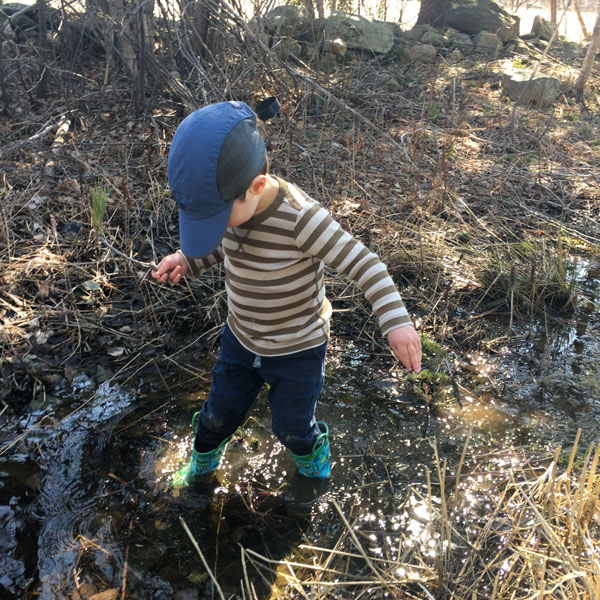
I have to hold him back from tromping into a thick swamp to look for the frogs that are making such a racket. We’ll find frogs somewhere else. But in most of these activities, I join him. For some reason, people have gotten it in their heads that a physical relationship with the natural world is something exclusive to childhood, that an adult relationship to nature means standing back and observing from a distance. Not so! Get in there and muck around. It will make you feel better.
But if you are stuck inside right now, and you well might be, there are still ways to visit the woods in spirit. One way is to read. In the last few weeks I have read C.D. Wright’s book Casting Deep Shade, a curious stroll through the marvelous world of the beech tree. Not at all a narrative, not exactly poetry, it is full of tidbits of science and history, anecdotes, musings, and gorgeous black-and-white beech photos. I have also begun Richard Powers’ epic novel The Overstory, winner of the Pulitzer Prize. Both books settle into the long, deep lives of trees, placing them in contrast to the short lives of humans and the fast pace of human history. A change in perspective can be therapeutic.
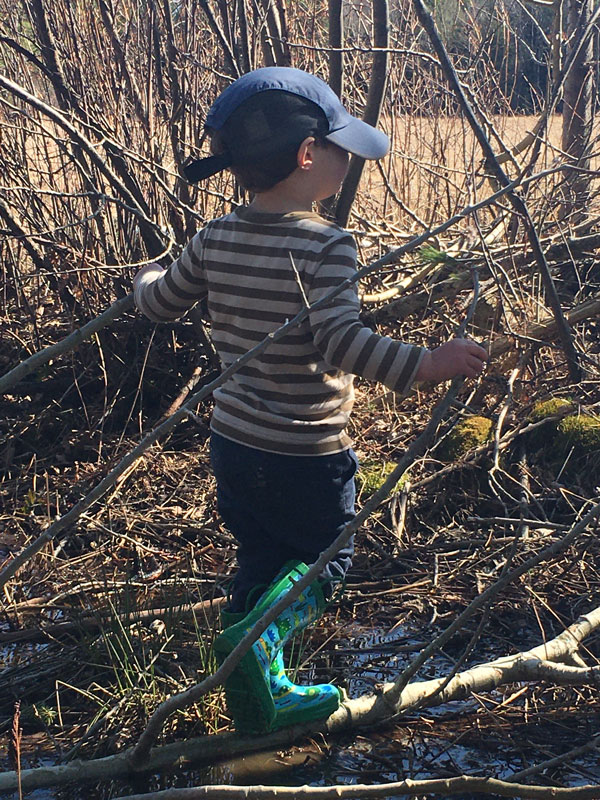
Meditation can be too. Here’s something that might help you fall asleep on an anxiety-ridden night: Close your eyes and remember a favorite tree (if you can’t think of one, conjure one). Walk around it in your mind. Try to remember what the bark feels like. What does it smell like in spring or fall or winter? Breathe slowly and deeply. Trace the shape of a leaf in your mind’s eye. Look up through the forking branches. Remember the sound a breeze makes, clacking branches or rustling leaves. For a moment, if you can, let this be all there is. In your meditation, climb the tree, even if you have never climbed it in real life, even if it would be impossible. Climb as high as you like.
